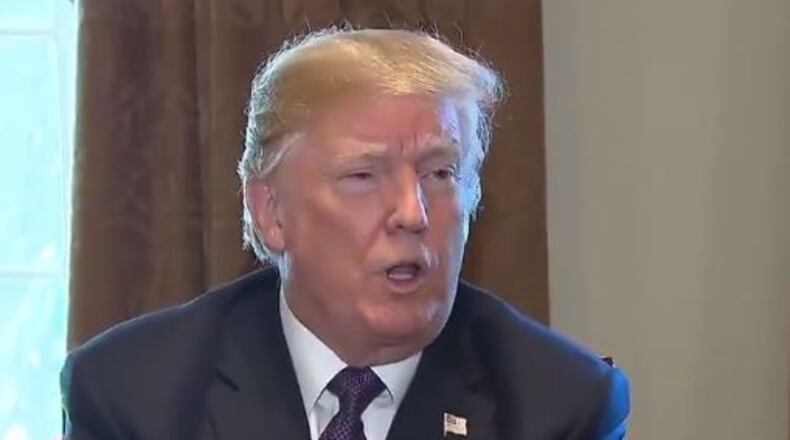President Donald Trump goes to Capitol Hill this afternoon to meet with Senate Republicans, as GOP leaders in the Senate try to keep a sweeping tax reform package on track, with lawmakers fully expecting more changes to the measure to nail down the final few votes.
"I think the tax bill is going very well," the President said Monday after meeting with a group of GOP Senators involved in designing the Senate's version of tax reform.
"Again - it will be the biggest tax reduction in the history of our country," Mr. Trump said, once more emphasizing the main GOP theme of tax cuts.
While the White House wants a quick vote in the Senate, it was readily apparent as lawmakers returned from a Thanksgiving break that a few Senators wanted changes in the bill before voting for the plan, clouding the calculus on whether a vote would take place this week on the Senate's version.
Prime among the alterations being pressed were new provisions on how taxable income from 'pass through' businesses would be treated, as Sen. Ron Johnson (R-WI) and other Republicans argued such small businesses deserved more in the way of tax relief.
"I want to see changes to the tax cut bill that ensure main street businesses are not put at a competitive disadvantage against large corporations," said Sen. Steve Daines (R-MT), who along with Johnson was also pressing for the same type of pass through changes.
But others in the Senate were ready to sign on, despite making earlier noise about possibly opposing the tax bill.
"I plan to vote for this bill as it stands right now. I urge my colleagues to do the same," wrote Sen. Rand Paul (R-KY) in an opinion piece on the website of Fox News.
In a new review of the Senate's version of tax reform, Capitol Hill number crunchers said - on average - the plan would lower taxes for every income level; that was different than the same review from last week, which indicated tax increases for many at lower income levels.
The change - which produced the graphic below - occurred because of a different review, leaving out the impact of the plan to end the individual mandate in the Obama health law.
Credit: Jamie Dupree
Credit: Jamie Dupree
The Congressional Budget Office - and other experts - argue the end to the mandate would cause other impacts for those in lower income groups, like increased health care premiums.
The Senate Budget Committee was set to meet at 2:30 pm this afternoon to vote on the package; Sen. Johnson is on that panel, and says for now he will vote 'no' unless changes are made.
That meeting will occur after the President has lunch with GOP Senators.
About the Author
The Latest
Featured




